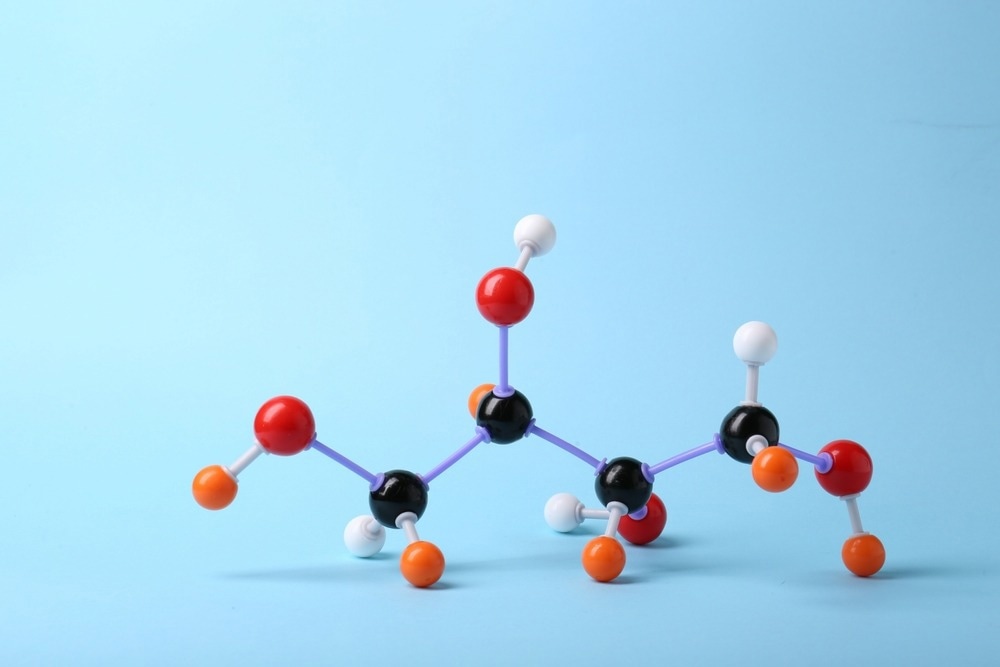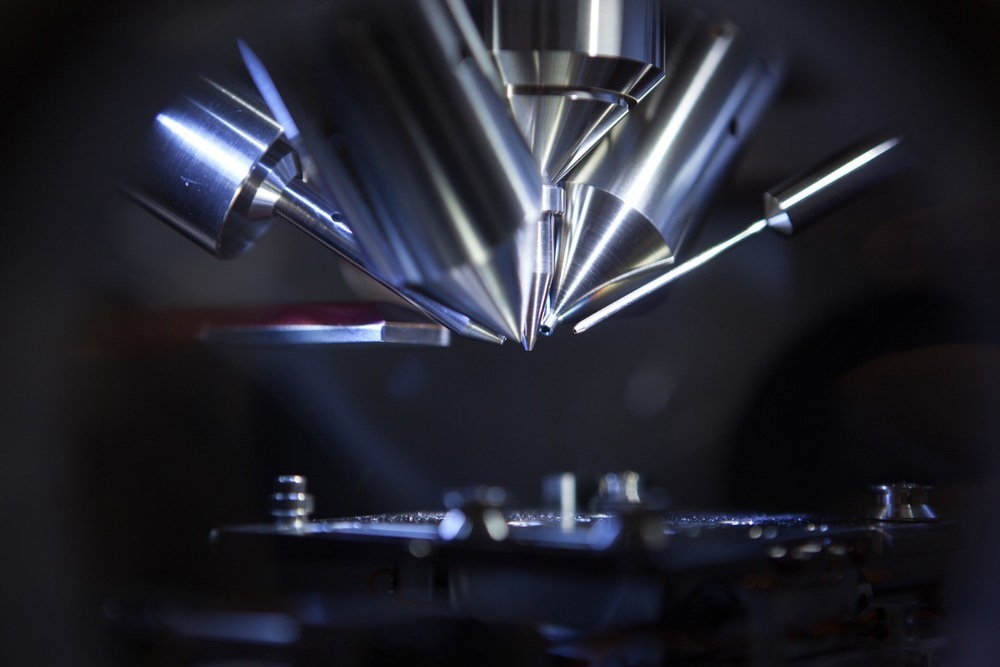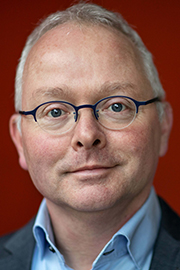In this interview conducted at Pittcon 2023 in Philadelphia, Pennsylvania, we spoke to Professor Albert Heck and gained a mass spectrometrist's perspective on the field of glycobiology.
What is your professional background, and what first attracted you to the field that you work within?
My name is Albert Heck, and I am the chair in biomolecular mass spectrometry and proteomics at Utrecht University in the Netherlands. I am a mass spectrometrist with a broad interest in proteins.
By training, I am an analytical chemist but also a physical chemist and a biochemist. It is great that you can expand on what you are doing and cover all these areas from your basis as a mass spectrometrist.
Revolutionizing Glycobiology: A Mass Spectrometrist's Perspective - Albert Heck at Pittcon 2023
How did your previous research prepare you for the field of glycobiology?
I worked for a long time on the analysis of proteins, and in the early days, we ignored that these proteins could also be glycosylated because it was too difficult to analyze. It makes the proteins way more complex because they are more heterogeneous.
However, through advances in mass spectrometry and analytical chemistry, we can now study these glycoproteins and the glycans that are present on glycoproteins, as have realized that these are crucial to their function.
If you really want to understand how proteins work, especially plasma proteins and proteins on the cell surface, you have to analyze and understand their protein glycosylation as well. I became interested in this field purely because I knew it was important.
What is glycobiology?
Biology is the study of life, but I do this more on the molecular level. I am particularly interested in how proteins work, and glycobiology is anything that is to do with sugars.

Image Credit: New Africa/Shutterstock.com
Sugars can be free in your body and cells, but they can also be attached to lipids and proteins. They can even cover the whole cell with a sugar layer, which happens in most of our cells. The field of glycobiology is the study of what these glycans do, where they are, and what they do to protect us from all kinds of pathogens in the broader sense.
Why is the study of the structure, the biosynthesis and biology of carbohydrates so important?
There are three stages when it comes to the study of sugars. Sugars that we typically call free sugars are, in scientific words, known as glycans. If these glycans are attached to lipids or proteins, we call them glycolipids or glycoproteins. It is crucial to study free glycans and how these glycans are attached to lipids or proteins, as they can modify the protein so that they can change their function and recognize each other. This can be both positive and negative.
For instance, if viruses want to enter our cells, they also have to recognize the glycans on the cell. If they recognize them, they can go in. If they do not recognize them, they cannot go in. This is just one, but very important, example.
How has mass spectrometry changed over the past few years, and how has this impacted glycobiology?
Mass spectrometry is a very powerful technique, and up to 10 years ago, it was pretty good at analyzing free sugars. However, when these sugars were attached to proteins it was much more of a challenge. In most glycoproteins, tens of different glycan structures can be attached to the protein, making the analysis of the structurally heterogeneous molecule much more complex.
With mass spectrometry, we did not have the separation yet to really define all the different glycan structures on the glycoprotein. But nowadays, with higher resolution, better separation technologies, better enrichment technologies, and better software, we became ready to enter this field, and are now playing an important part in it.
Many glycobiologists who did not know mass spectrometry in the past are now using it for their analyses.

Image Credit: Intothelight Photography/Shutterstock.com
What are the main factors to consider when using mass spectrometry to study carbohydrates?
Carbohydrates are an immensely complex sample to analyze as they are very heterogeneous in their structures. They can also have different linkages that make them highly complex.
On the other hand, the human body has certain rules, and by studying how the glycans are attached to the proteins, we start to understand which glycans are put onto the proteins and their specific functions. Previously we ignored it, but if you really want to understand how life on earth works, you have to study the role of glycans on the proteins.
What are the drawbacks of current mass spectrometry models with regard to glycobiology, and how could those drawbacks be remedied?
There are always challenges; as mentioned before, we can measure masses, but we cannot easily measure structures. In the past, we used techniques like NMR and maybe even crystallography, but those techniques have limitations when it comes to studying glycans.
One of the weaknesses of mass spectrometry is that if we have two glycans that have the exact same mass but a unique structure because they have a distinct linkage of the chemical bonds, then it is harder for us to distinguish them.
The field is currently working on new techniques like ion mobility or spectroscopy to distinguish what we call isomers as they have the same mass. However, for now, using mass spectrometry in glycoproteomics is still considered a challenge.
What new approaches could be taken in the field of glycobiology?
There are many things being developed, and I think it is very interesting to follow the field of genome sequencing and the field of protein sequencing by nanopores. This highly attractive field could help overcome some of the previously mentioned challenges in the field of glycoproteomics.
At present, we cannot see how different isomers of a glycan or glycopeptide travel through a nanopore. Nanopore sequencing is still probably 5 to 10 years away from being developed, but it is an interesting field nonetheless.
New fragmentation techniques in mass spectrometry are also very important for glycobiology and glycoproteomics. We work a lot on photon-induced fragmentation and electron-induced dissociation. These things have already emerged but still need to be developed further before being implicated in analyses.
What are the main challenges facing glycobiology over the coming years?
The field of glycobiology is very important. We currently know that, for instance, the glycan shield on a tumor cell is different than on a healthy cell. But understanding this and how we can use this information to help develop therapeutics is one of the big challenges in the glycobiology field.
Over the last couple of years, everyone has become somewhat of an expert in virology. Yet, understanding how viruses enter cells depends on the glycan shield of the cell and the glycan layer on the virus. To understand that, we will need to conduct in-depth studies of these glycobiology aspects of almost every aspect of life.
How do you foresee your work in this field helping overcome such challenges?
You must always realize that your role in the field is just one out of thousands. I have been a mass spectrometrist for 20 years, and I have always been driven by my desire to show that mass spectrometry can always do more than what it could do yesterday. I am constantly looking for how this field can be further expanded and applied to new research questions.
The field of glycobiology is so important, and there are still so many challenges to be overcome. In the coming years, we want to work primarily on the ability to better detect the masses of glycoproteins and glycoprotein complexes. We also want to be able to sequence them better and obtain better information on which glycans are attached to which protein under which physiological conditions.
However, there is still a lot of work to be done before we achieve this.
What are you currently working on that you are particularly excited about?
I am particularly excited about a technique that we developed a couple of years ago where we made mass spectrometry way more sensitive; the technique is called single molecule mass spectrometry. We can also measure the masses of single particles and single molecules using this technique.
This single molecule detection technique can also be used to overcome some of the challenges previously discussed. This is especially true for molecules like glycoproteins that can be so heterogeneous that it is sometimes very difficult to measure their mass.
We developed the technology to determine the true sensitivity of mass spectrometry, and now that we have this in hand, especially in terms of the analysis of very large glycoproteins, we can see that its application is huge. This will be a highly beneficial technique in the field of glycoproteomics.
About Professor Albert Heck
Albert J.R. Heck (Utrecht University, The Netherlands) is scientific director of the Netherlands Proteomics Centre. Heck’s group emphasizes on the development and applications of advanced mass spectrometry-based proteomics technologies. Heck introduced TiO2 and Ti4+-IMAC based technologies for phospho-enrichment. Heck pioneered the use of alternative proteases and hybrid peptide fragmentation techniques (e.g. EThcD, UVPD). His group also introduced 15N labeling in multicellular organisms and the cost-effective dimethyl labeling. Heck’s proteomics research focuses for a large part on cancer, stem cells and immunology. Besides the proteomics efforts, the group of Heck is also well known for its expertise in mass spectrometry based structural biology, using native mass spectrometry, cross-linking and/or HD exchange mass spectrometry. The Heck-lab developed dedicated instruments for the analysis of intact proteins and protein complexes, with most recently a new high-mass Orbitrap, a serious breakthrough for top-down proteomics and native mass spectrometry. Through the development of the XlinkX and PhoX workflows they also facilitated proteome wide cross-linking studies. In recent years he has also focused on analyzing biopharmaceuticals, and plasma glycoproteins and immunoglobulins.
Heck’s group emphasizes on the development and applications of advanced mass spectrometry-based proteomics technologies. Heck introduced TiO2 and Ti4+-IMAC based technologies for phospho-enrichment. Heck pioneered the use of alternative proteases and hybrid peptide fragmentation techniques (e.g. EThcD, UVPD). His group also introduced 15N labeling in multicellular organisms and the cost-effective dimethyl labeling. Heck’s proteomics research focuses for a large part on cancer, stem cells and immunology. Besides the proteomics efforts, the group of Heck is also well known for its expertise in mass spectrometry based structural biology, using native mass spectrometry, cross-linking and/or HD exchange mass spectrometry. The Heck-lab developed dedicated instruments for the analysis of intact proteins and protein complexes, with most recently a new high-mass Orbitrap, a serious breakthrough for top-down proteomics and native mass spectrometry. Through the development of the XlinkX and PhoX workflows they also facilitated proteome wide cross-linking studies. In recent years he has also focused on analyzing biopharmaceuticals, and plasma glycoproteins and immunoglobulins.
Heck is recipient of the HUPO Discovery Award (2013), and the Proteomics Pioneer Award from the European Proteomics Association (EuPA, 2014). In 2016 he received the ACS Field and Franklin Award. In 2014 he became elected member of EMBO and the Royal Netherlands Academy of Sciences and Arts (KNAW). In 2017 Heck received the Spinoza Prize, the most distinguished scientific award in the Netherlands. In 2018 Heck received the Thomson medal of the International Mass Spectrometry Society and the Krebs medal (FEBS).

About Pittcon
Pittcon® is a registered trademark of The Pittsburgh Conference on Analytical Chemistry and Applied Spectroscopy, a Pennsylvania non-profit organization. Co-sponsored by the Spectroscopy Society of Pittsburgh and the Society for Analytical Chemists of Pittsburgh, Pittcon is the premier annual conference and exposition on laboratory science.
Proceeds from Pittcon fund science education and outreach at all levels, kindergarten through adult. Pittcon donates more than a million dollars a year to provide financial and administrative support for various science outreach activities including science equipment grants, research grants, scholarships and internships for students, awards to teachers and professors, and grants to public science centers, libraries and museums.
Visit pittcon.org for more information.